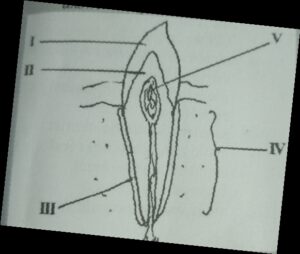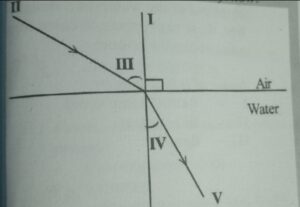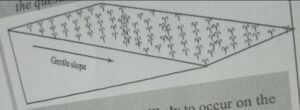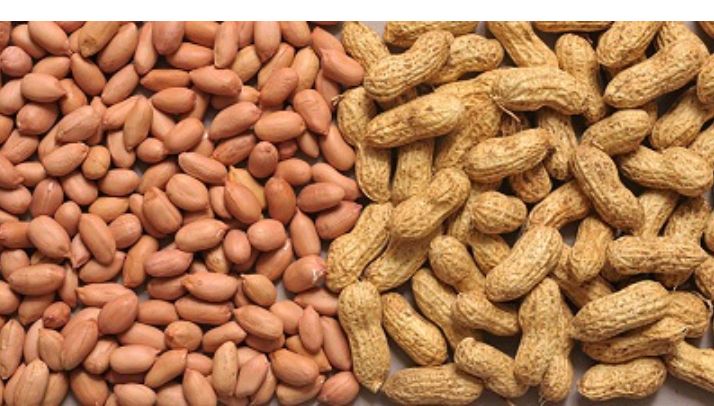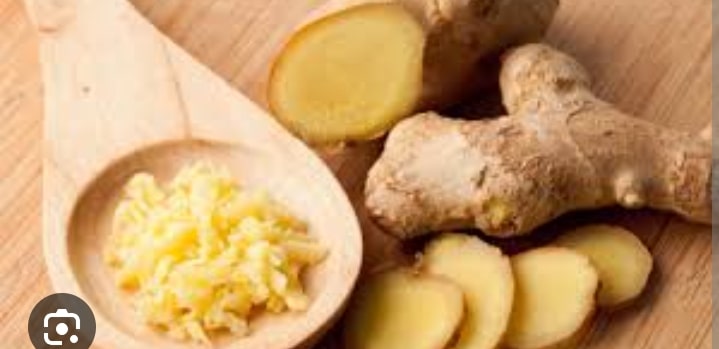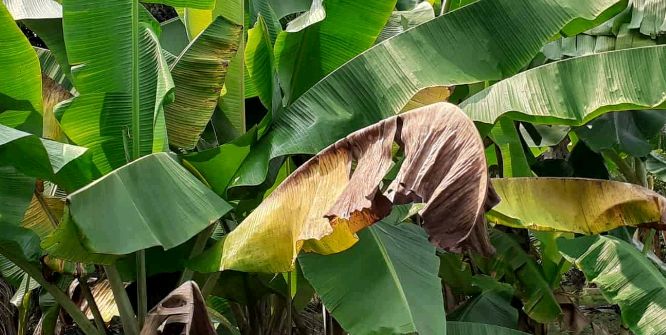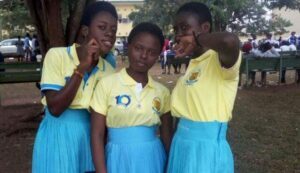 educationalhealthynews
educationalhealthynews
2017 BECE Past Examination Objectives & Practicals Questions And Answers
Objective questions and answers. 2017 BECE Past Examination Objectives & practicals Questions And Answers.
1. The Instrument used to measure humidity is
A. Hydrometer
B. Hygrometer
C. Rain gauge
D. Wind vane
Answer: B. hygrometer
2. The SI unit of density Is
A. ms-1
B. ms-2
C. kgm-3
D. m3kg-1
Answer: C. kgm-3
3. When light travels from glass to air, it’s speed is
A. Increased
B. Reduced
C. Halved
D. Unchanged
Answer. A. Increased
4. When a piece of iron rod is brought near a permanent magnet for a while, it becomes magnetized by
A. Stroking
B. Electric method
C. Friction
D. Induction
Answer: D. Induction
5. A rheostat is used in an electric circuit in order to
A. Increase electric current only
B. Decrease electric current only
C. Keep electric current constant
D. Increase and decrease electric current.
Answer: D. Increase and decrease electric current.
6. Which of the following statements about opaque objects is correct?
A. Allows light to pass through it partially
B. Allow light to pass through it fully
C. Forms a shadow
D. Does not form a shadow
Answer: C. Forms a shadow
7. One of the characteristics of solid is that
A. It’s particles are tightly packed
B. It resumes the shape of it’s container
C. It had no fixed volume
D. It’s particles can easily be separated
Answer: A. It’s particles are tightly packed
8. The only Instrument used to measure current in an electric circuit is the
A. Ammeter
B. Photometer
C. A thermometer
D. Voltmeter
Answer: A. Ammeter
9. The bottom of a pool of water appears closer to the surface than normal because of
A. Reflection
B. Transparency of water
C. Refraction
D. Rectilinear propergation
Answer: C. Refraction
10. An example of a source of energy which is non- renewable is
A. Petroleum
B. Solar
C. Tide
D. Wind
Answer: A. Petroleum
2017 BECE Past Examination Objectives
11. Which of the following apparatus is not required in the process of distilation
A. Condenser
B. Evaporating dish
C. Bunsen burner
D. Round bottom flask
Answer: B. Evaporating dish
12. The number of oxygen atoms In three molecules of carbon dioxide Is
A. 3
B. 4
C. 5
D. 6
Answer. D. 6
13. The chemical formula Cl2 represents two
A. Atoms of chlorine
B. Neutrons of chlorine
C. Ions of chlorine
D. Molecules of chlorine
Answer: A. Atoms of chlorine
14. Which of the following substances can rust?
A. Aluminum
B. Bauxite
C. Copper
D. Steel
Answer: C. Copper
15. Energy stored in foods is referred to as
A. Chemical energy
B. Heat energy
C. Solar energy
D. Kinetic energy
Answer: A. Chemical energy
16. Which of the following substances is a mixture?
A. Water
B. Sodium chloride
C. Sodium chloride solution
D. Iron filing
Answer: C. Sodium chloride solution
17. The mole Is the S.I unit of
A. Amount of substance
B. Luminous intensity
C. Temperature
D. Mass of substance
Answer: A. Amount of substance
18. An atom has a proton number of 17 and neutron number 18. Determine the number of electrons in the third shell of the atom.
A. 1
B. 3
C. 5
D. 7
Answer: D. 7
19. An example of mixture that can be separated by filtration is
A. Sugar in water
B. Sand in water
C. Oil in water
D. Ink in water
Answer: B Sand in water
20. Which of the following liquids would turn blue litmus paper red?
A. Vinegar
B. Water
C. Ammonia solution
D. Bicarbonate solution
Answer: A. Vinegar
2017 BECE Past Examination Objectives
21. Which of the following particles constitute matter?
I. Atom
II. Molecule
III. Ion
A. I only
B. II only
C. II and III only
D. I, II and III
Answer: D. I, II and III
22. An example of inheritable character in human is
A. Shape of nose
B. Knowledge
C. Ability to speak different languages
D. Handwriting
Answer: A. Shape of nose
23. Which of the following statements about aerobic respiration is correct?
A. The by products are carbon dioxide and water
B. Less energy is released
C. Oxygen is not required
D. By products are alcohol and carbon dioxide
Answer: A. The by products are carbon dioxide and water
24. Sperms produced by the testis are temporary stored in
A. Epididymis
B. Prostate gland
C. Seminal vesicles
D. Sperm duct
Answer: A. Epididymis
25. Which of the following changes normally occur during old age?
A. Grey hair start appearing
B. Mental alertness increases
C. Broadening of the chest
D. Attraction to the opposite sex
Answer. A. Grey hair start appearing
26. One characteristic of wind pollinated flower is that
A. It is large
B. It is heavily scented
C. Have nectar
D. Have feathery stigma
Answer: D. Have feathery stigma
27. Why the testis are located outside the body?
A. The temperature of the body is too high
B. They can not increase in side in the body
C. They can absorb moisture from the atmosphere
D. They occupy too much space
Answer: A. The temperature of the body is too high
28. Which organelle occupies the largest space
A. Chloroplast
B. Mitochondrion
C. Nucleus
D. Vacuole
Answer: D. Vacuole
29. The movement of the ribs is possible due to
A. Pleural cavity
B. Intercoastal muscles
C. Larynx
D. Trachea
Answer: B . Intercoastal muscles
2017 BECE Past Examination Objectives
30. Fertilization occurs in
A. Ovary
B. Womb.
C. Vagina
D. Oviduct
Answer: D. Oviduct
31. Which of the following is an example of osmosis?
A. Spreading of perfumes I no a room
B. Absorption of food nutrients.
C. Spreading of potassium permanganate in water
D. Absorption of water in to the root hairs
Answer: D. Absorption of water in to the root hairs
32. Which of the following is semi permeable?
A. Cytoplasm
B. Nucleus
C. Protoplasm
D. Cell membrane
Answer: D. Cell membrane
33. Which of the following statements about soil profile is/are correct? Helps Farmer determine
I. Soil fertility
II. Water holding capacity of the soil
III. Depth of the soil
A. I only
B. I and II only
C. II and III only
D. I, II and III only.
Answer: D. I, II and III only.
34. Which of the following is not a principle of crop rotation?
A. Leguminous crop should be added to the program
B. Deep rooted crops should be followed by shallow rooted crop.
C. Crops that are closely related should follow each other
D. Fallow period should be allowed
Answer: C. Crops that are closely related should follow each other
35. The relative proportion of Sand, silt and clay in AZ given soil sample is called soil..
A. Profile
B. Porosity
C. Structure.
D. Texture
Answer:C. Structure.
36. The first factor to consider in the cultivation of vegetables is.
A. Cultural practices
B. Land selection
C. Harvesting
D. Method of propergation
Answer: B. Land selection
37. Which of the following factors should be considered the selection of a site for vegetable production?
I. Nearness to the market
II. Topography of the land
III. Nearness to the Sea
A. I and II only
B. I and III only
C. II and III only
D. I, II and III
Answer: A. I and II only
38. Which of the following are cultural practices?
I. Pruning
II. Weeding
III. Watering
A. I and II only
B. I and III only
C. II and III only
D. I, II and III
Answer: D. I, II and III
39. Which of the following is a vegetable?
A. Cocoa.
B. Cotton
C. Potato
D. Tomato
Answer: D. Tomato
40. The majority charge carries in a p- type semi conductor are.
A. Electrons
B. Holes
C. Neutrons
D. Protons
Answer: D. Protons
Practicals type questions.
2017 BECE Past Examination Practicals l
1a. The diagram below is an illustration of a longitudinal section of a canine tooth in humans.
Study the diagram carefully and answer the questions that follow
I) Name each of the parts labeled I, II, III, IV and V.
II) What is the function of each of the parts labeled I and III?
III) Which of the labeled parts could be affected by tooth decay?
IV) State three ways by which tooth decay maybe prevented
Solution to question 1a.
I) Names of the parts
I- enamel
II- dentine
III- cement
IV- root.
V- pulp cavity
II) functions of the parts
I- tearing flesh
– protecting the dentine Against harm.
III- protects the pulp cavity.
III) part affected by tooth decay.
Pulp cavity
IV) prevention of tooth decay
– avoid eating too much sugary foods.
– avoid eating too cold food.
Avoid eating too hot food
– avoid smoking
– visit the dentist occasionally
Question 1b)
Study the diagram below carefully and answer the questions that follow
I) What phenomenon does the diagram illustrate?
II). Identify each of the parts labeled I, II, III, IV and V.
III). Explain why an object at the bottom of a pond appears closer to the surface than it actually is.
Solution to question 1b.
I) . Identification of phenomenon
Refraction of light
II). Identification of parts.
I- normal
II- incident ray.
III- angle of incidence
IV- angle of refraction
V- refracted ray
III). Explanation to why object in a pond appears closer than normal
Light rays from the object in the pond bend away from the normal as they fall on retina of the observer. Similarly, light rays from air (land) falling on the object in the pond bend towards the normal. This is so because, when light ray moves from a denser medium (water) to a less dense medium ( air), it bends away from the normal and when light ray moves from a less dense medium to a denser medium, it bends towards the normal.
2017 Bece Past Examination Practical Questions
Questions 1c.
In an experiment to separate the components of muddy water, the below setup was used.
Study the diagram carefully and answer the questions that follow.
I). Name each of the parts labeled I, II and III.
II). State the function of the part labeled II.
III). Name the substance obtained asn the filtrate
IV). State three physical properties of the filtrate.
V). Name two other materials that could be used to replace the part labeled II.
Solution to question 1c.
I) Names of parts
I- retort stand and clamp.
II- filter paper
III- funnel
II). Function of the filter paper
– to prevent the residue from entering the beaker with the filtrate.
III). Name of filtrate
– water
IV) physical properties of the filtrate
– it boils at 100°C
– it freezes at 0°C
– it is a universal solvent
-it has no fixed shape, it takes the shape of its container.
Students and teachers should note this carefully;
Points like;
Odourless, colourless and tasteless as stated in most text books are considered as wrong in the marking scheme. This is so because, muddy water can not be odourless, colourless and tasteless just through filtration. Only pure water that is odourless, colourless and tasteless. Muddy water that has been filtered is not a pure water.
V) materials in place of filter paper
– cloth.
– cotton wool
– foam
– gauze
Question1d.
The diagram below illustrates a farmland on a sloppy area.
Study the diagram carefully and answer the questions that follow
I). What process is likely to occur on the farm land when it rains heavily?
II). State two farming practices that can also lead to the process mentioned in (I) above.
III). Mention four farming practices that could be used to control the process mentioned in (I) above.
IV) . Mention Three soil resources that would be depleted from the farmland when it rains heavily
Solution to question 1d
I). Process likely to occur
– soil erosion (sheet erosion)
II). Farming practices that could cause the process
– bush burning
– continuous cropping
– excessive use of inorganic fertilizer
– overgrazing sand winning
III). Farm practices that could halt the process
– crop rotation
– organic farming
– contour ploughing
– cover cropping
– mulching
– Afforestation
IV. Soil resources that would be depleted
– soil nutrients
– soil air.
– soil organisms
– soil particles
2017 BECE Past Examinations practical
You can join us on Whatsapp
https://chat.whatsapp.com/L0FNkFDvSDmJKIDUtF9weL

